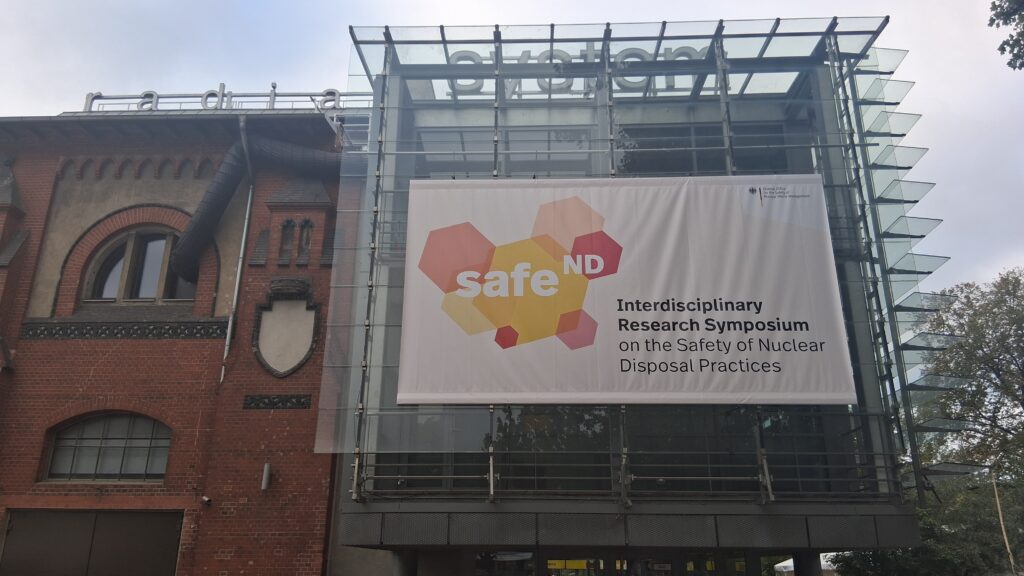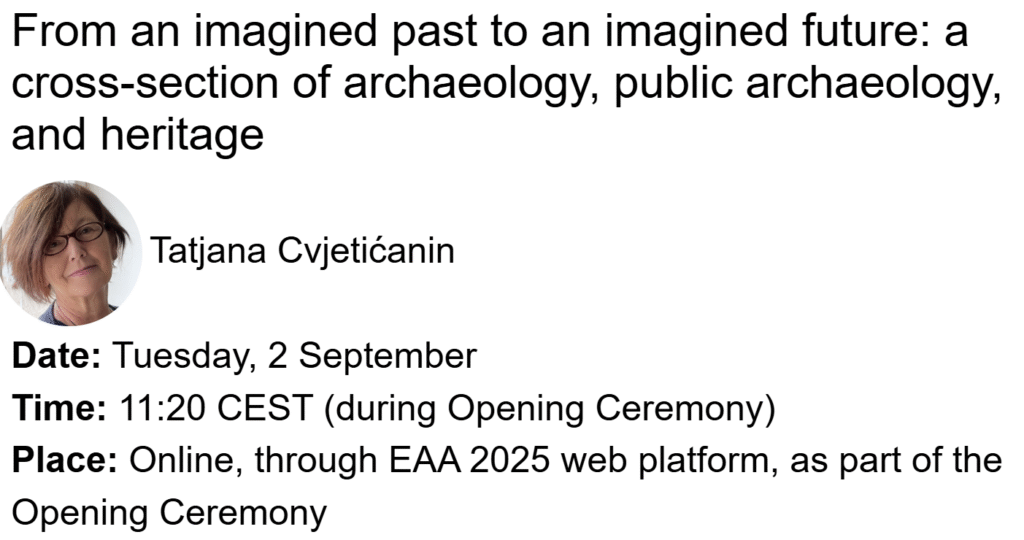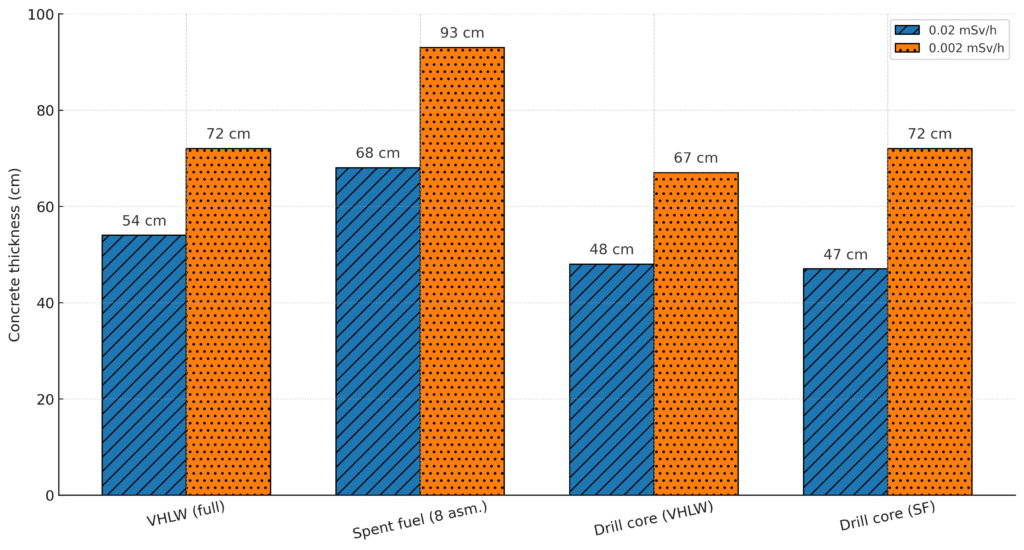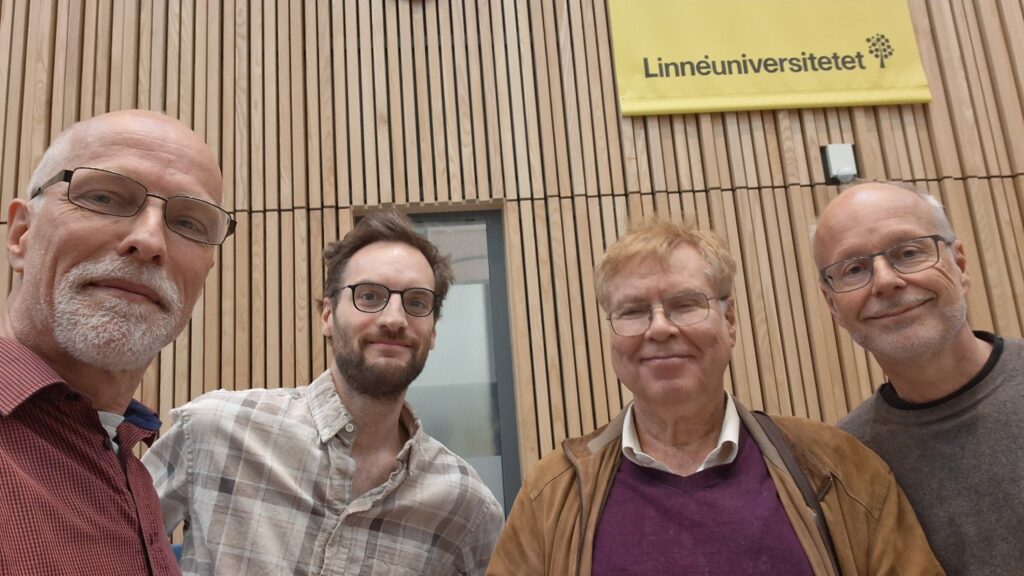Nuclear waste in a cultural perspective
2025-09-20
Claudio Pescatore (affiliated with the UNESCO Chair on Heritage Futures) and I took part in the 2025 Interdisciplinary Research Symposium on the Safety of Nuclear Disposal Practices (safeND 2025) held by the German Federal Office for the Safety of Nuclear Waste Management BASE (Bundesamt für die Sicherheit der nuklearen Entsorgung) in Berlin 16-19 September 2025.

The overall theme was “Time as a safety factor: opportunities and challenges of timely nuclear waste disposal“. It quickly became clear that this focus was inspired by the perceived need to accelerate the decision-making process to identify the site location for Germany’s repository of high-level nuclear waste. But the topics discussed during the symposium were much wider and covered perspectives from many different disciplines bringing up a wide range of issues, not the least the issue of radioactive waste resulting from uranium mining that has not always been formally included into the discussions of nuclear waste. Claudio Pescatore led a workshop on this latter topic, based on his recent research.
One highlight was the keynote lecture by Andrew Stirling, University of Sussex and formally a Board Member of Greenpeace. It turned out he was originally an archaeologist! He also made a powerful argument suggesting that the objective of finding “the best possible” solution for safe nuclear waste disposal, which the German legislation requires, misses the question whether “the best possible” solution can ultimately be satisfactory.
In my talk (in front of cirka 50 participants), I adopted this question asking whether what many think is “the best possible” way to plan for uncertain future needs is ultimately satisfactory. My point was that taking a cultural perspective linked to the capability of futures literacy can get us further…
Nuclear waste disposal is not only about physical time, safety, technology and social and political acceptance but it is also about long-term thinking, embracing cultural change, and human values and identities that are shifting over time.
Holtorf, C.: Sustainability and long-term processes: a cultural perspective, Third interdisciplinary research symposium on the safety of nuclear disposal practices, Berlin, Germany, 17–19 Sep 2025, safeND2025-6, https://doi.org/10.5194/safend2025-6, 2025.
ABSTRACT
Culture is about how people make sense of the world, of each other, and of themselves. It is diverse in scale, across space, and over time. By implication, expertise on the world, its inhabitants, and ourselves is culturally relative. Indeed, culture is often about managing difference: different ideas, different people, different languages.
Applied to the need to sustain a body of knowledge and guidance for action over the long term, a cultural approach will (have to) embrace the need to adapt to cultural changes and developments. All this means that regarding nuclear waste, what we are tasked with today is transferring to future generations, who will be living in their own cultural contexts, knowledge and guidance for action that will make sense to them, not to us. Proposed messages that lack futures literacy merely perpetuate our own frameworks of meaning and eventually become irrelevant and unsustainable. There are thus good reasons why they say that nothing ages faster than the future, and nothing is more difficult to predict than the past. In this paper, I will discuss some implications of this theoretical argument for geological disposal of radioactive waste.










[…] The new funding for this and a number of additional smaller projects, means that the Climate Heritage Network is…
[…] Chair on Heritage Futures « Culture, cultural heritage and COP26 […]
[…] mer på Unescoprofessurens blogg http://blogg.lnu.se/unesco/?p=1061 Besök Öland 2050! […]